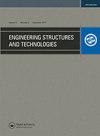TECHNO-ECONOMIC COMPARISON OF BIFACIAL VS MONOFACIAL SOLAR PANELS
引用次数: 0
Abstract
A techno-economic analysis is performed for a solar farm with a 35 MWe installed capacity using bifacial solar panels and compared with standard monofacial solar panels at the same installed capacity level. The bifacial panel usage gain from total panel efficiency is identified from 4-year measurements to be within a range of 7.9–16.8% depending on monthly yield. A Monte Carlo simulation is carried out to forecast electricity prices under uncertainty. In terms of Net Present Value, it is found that the bifacial farm yields 12.6% higher values than the monofacial options under reference assumptions. An incremental internal rate of return (IRR) analysis is carried out yielding an IRR for the bifacial panels of 44% under various scenarios. The sensitivity analysis reveals that results are highly sensitive to discount rate and lifetime, and less sensitive to electricity prices. SWOT analysis performed to compare the bifacial with the monofacial panel and evaluate panels according to internal and external factors. The study was concluded with a summary of the technical specifications based on the test results. The results were used to identify that 12.2% added net present value corresponding to $186.7 – $214.5 per unit MW (under various electricity price trajectories) can be used as a reference for assessing the benefit for usage of bifacial PV for 35 MW type medium-size projects. In summary, it is suggested that bifacial solar PV with its outstanding techno-economic results can be the driving force of the growing solar PV market.双面与单面太阳能电池板的技术经济比较
使用双面太阳能电池板对装机容量为35MWe的太阳能发电场进行了技术经济分析,并与相同装机容量水平的标准单面太阳能电池板进行了比较。根据4年的测量,从总面板效率中获得的双面面板使用收益在7.9-16.8%的范围内,具体取决于月产量。对不确定性条件下的电价进行了蒙特卡罗模拟预测。就净现值而言,发现在参考假设下,双面农场的价值比单面农场高12.6%。进行了增量内部收益率(IRR)分析,在各种情况下,双面面板的IRR为44%。敏感性分析表明,结果对贴现率和使用寿命高度敏感,对电价不太敏感。进行SWOT分析,将双面面板与单面面板进行比较,并根据内部和外部因素对面板进行评估。本研究以试验结果为基础,总结了技术规范。研究结果表明,12.2%的增加净现值相当于每单位兆瓦186.7至214.5美元(在各种电价轨迹下),可作为评估35兆瓦型中型项目使用双面光伏效益的参考。总之,双面太阳能光伏以其突出的技术经济效益可以成为太阳能光伏市场不断增长的驱动力。
本文章由计算机程序翻译,如有差异,请以英文原文为准。
求助全文
约1分钟内获得全文
求助全文

 求助内容:
求助内容: 应助结果提醒方式:
应助结果提醒方式:


